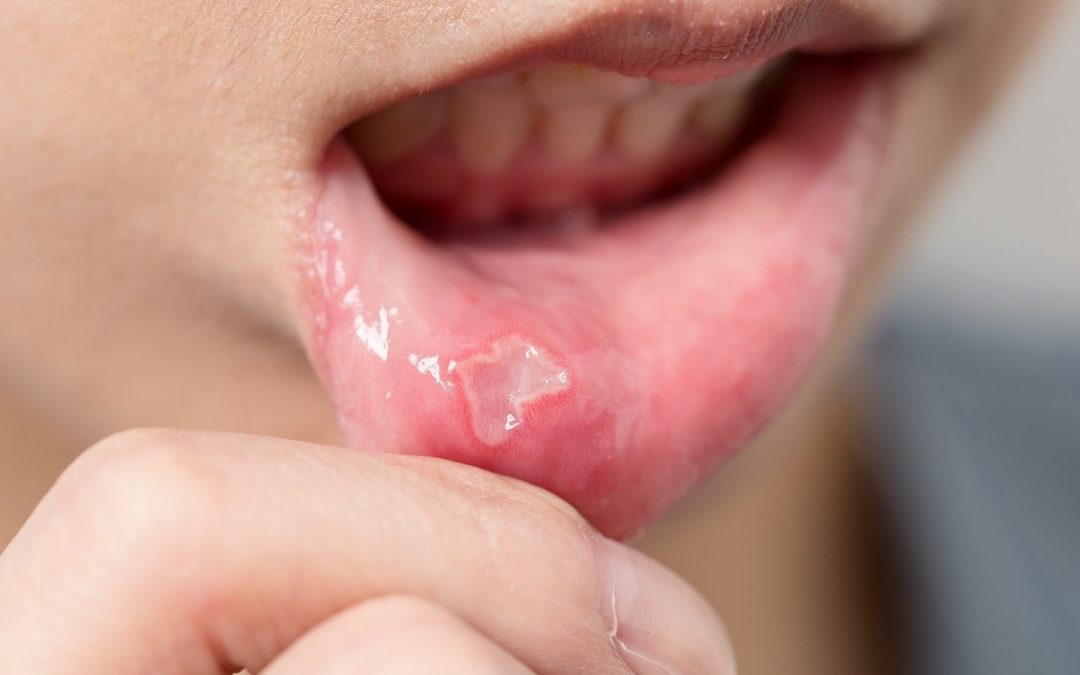Oral lesions, ulcers, and sores come in a variety of forms. While common, not all of them can be treated the same way. Identifying the type of sore might require a visit to your dentist so they can examine it and recommend treatment.
At Danville Family Dentistry, our dentists know how to diagnose oral sores and give you the care you need.
Types of Oral Lesions and Sores
Knowing how to identify oral lesions is the first step in getting treatment. Look for these signs of different types of oral sores:
- Canker sore: Canker sores typically develop on the soft palate and gumline as small, white or yellow sores with red around them. They are common and not contagious.
- Cold sore: Cold sores usually form on your lips, not inside your mouth. They look like canker sores, but they are contagious and caused by herpes simplex virus (HSV-1).
- Folate deficiency: These sores develop are often caused by vitamin deficiency, which may point to anemia.
- Oral thrush: Oral thrush is a fungal infection that causes white patches in your mouth. It can be painful and come with the loss of taste, a burning sensation, bleeding gums, and difficulty swallowing.
- Leukoplakia: Leukoplakia produces large white sores in the mouth. It is often harmless but may be a sign of cancer.
- Oral lichen planus: This tender, itchy sore creates a white patch on the inner cheek or tongue that looks lacy, like a spider web.
- Gingivostomatitis: This infection is caused by HSV-1 and produces small red or white sores on the gums or soft palate. It usually goes away on its own, but antiviral medications can help.
What Does It Mean if the Sore Doesn’t Heal?
If you have a canker sore that doesn’t heal after about two weeks, it could be erythroplakia, which can signal a cancerous or precancerous lesion. Sores that don’t heal may also be related to an autoimmune problem, like Celiac disease or Crohn’s disease.
If a sore doesn’t heal on its own after a couple of weeks, or if it grows or changes, visit your dentist. Detecting cancer and other problems early increases the possibility of treatment.
How to Treat Oral Lesions
Many common oral lesions resolve on their own without medical intervention. If you have a canker sore that causes you pain or makes it difficult to eat, you can use over the counter products like Orajel® to reduce those symptoms.
You may need to use an antibacterial mouth rinse with dexamethasone or a corticosteroid ointment. In severe cases, Benzocaine, hydrogen peroxide, or another oral medication can treat the problem.
If you’re dealing with any type of oral lesion or sore, talk to the dental professionals at Danville Family Dentistry in Danville, Indiana. We can identify the cause of your sore and recommend treatment. Call us today at (317) 745-4400 or contact us online.
Are you on Facebook? We are, too! Let’s be friends!
Disclaimer: The information included in this article is for educational purposes only. It should not be used as a substitute for professional medical advice, diagnosis or treatment.


 (317) 745-4400
(317) 745-4400
